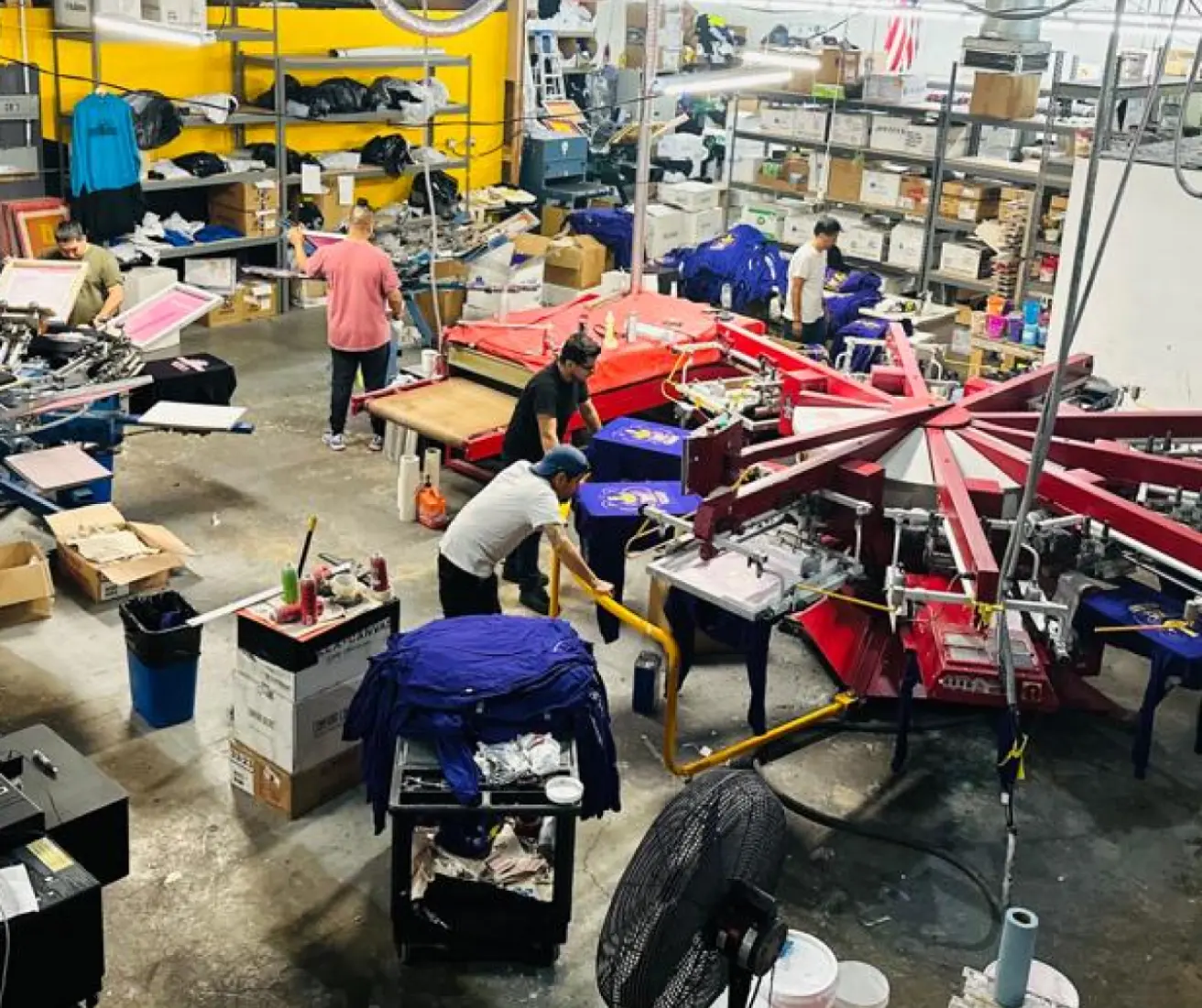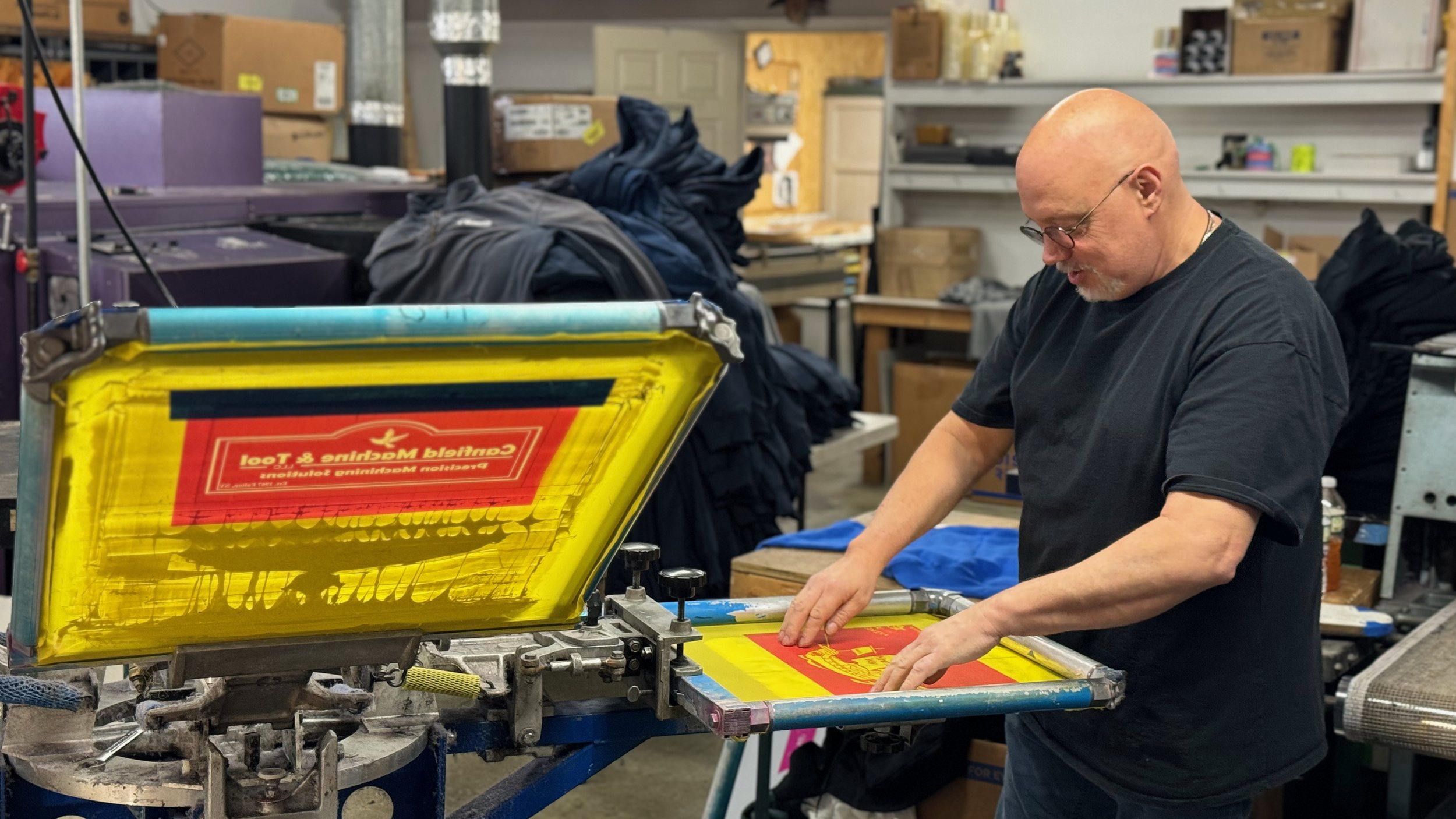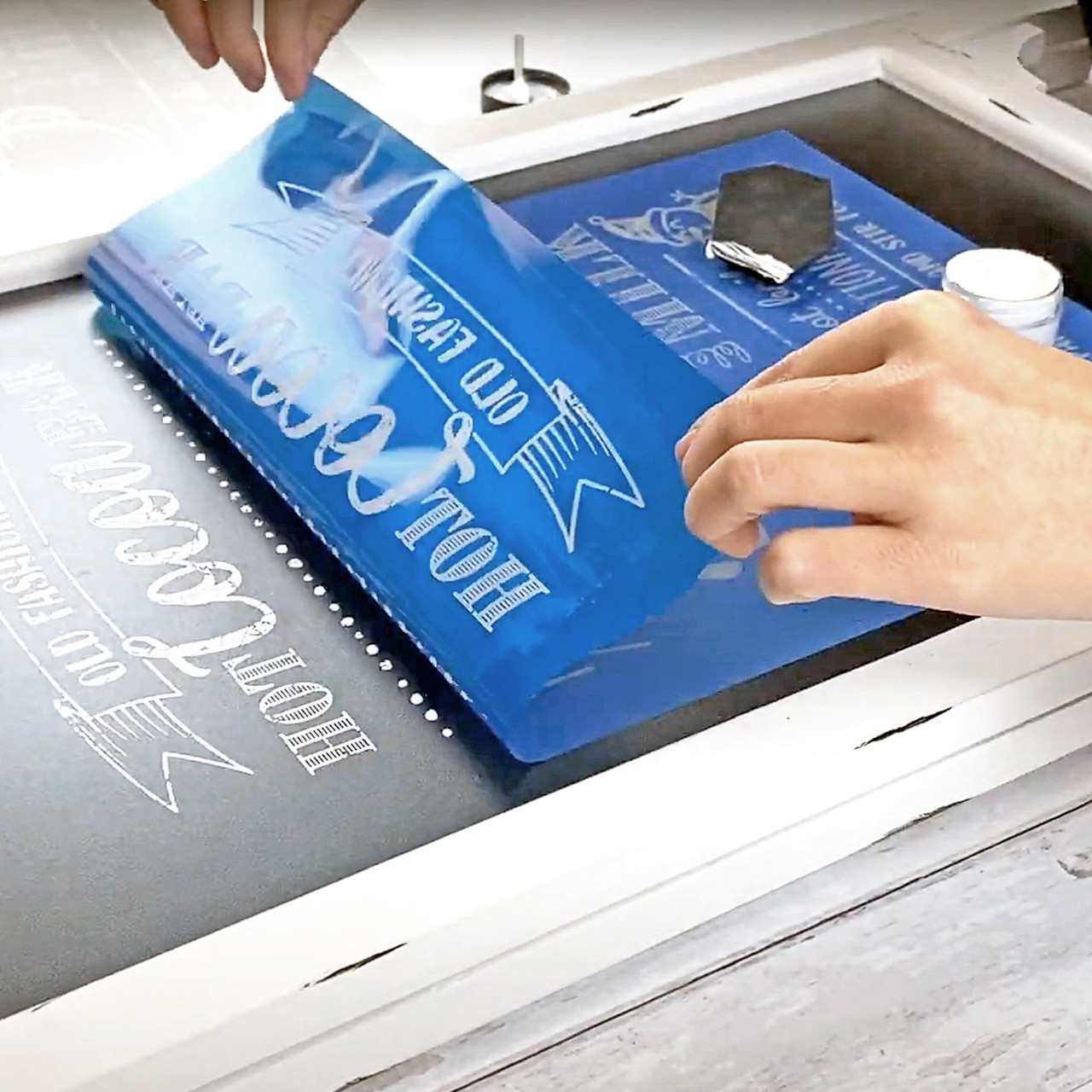Professional Screen Printing Kit for Custom Apparel
Professional Screen Printing Kit for Custom Apparel
Blog Article
Screen Printing Uncovered: Every Little Thing You Need to Know Regarding T-Shirt and Garment Printing Techniques
If you've ever before questioned how those vivid styles wind up on your favored t-shirts, you're in the best location. Display printing is an interesting method that combines art with strategy, offering unlimited possibilities for creativity. Recognizing the principles, from devices to ink options, can greatly impact your outcomes. Prepared to check out the vital elements that make display publishing an art kind? Allow's reveal the information that can elevate your tasks.
The Essentials of Screen Printing: Exactly How It Functions
When you dive into display printing, you'll discover it's both a science and an art. At its core, display printing includes producing a stencil, or display, that enables ink to pass via only in certain areas.
Setting the screen over the material, after that utilize a squeegee to press ink via the display onto the garment. Each action is important, and grasping them will raise your display printing skills, transforming simple garments right into distinct, meaningful items.
Kinds Of Screen Printing Strategies
Once you realize the essentials of display printing, it's time to discover the numerous methods that can boost your layouts. One preferred approach is standard display printing, where ink is pushed via a stenciled screen. This technique is great for bold, dynamic shades. There's water-based ink printing, which uses a softer feeling and is environment-friendly, yet it needs a various approach to curing.
An additional choice is plastisol printing, known for its sturdiness and vibrant shades, making it a favored for numerous brand names. Experiment with halftone printing to develop gradient results and elaborate styles.
Vital Devices for Display Printing
To accomplish sensational cause screen printing, having the best devices is fundamental. First, you'll need a tough display printing structure, which holds the mesh that transfers your layout onto the garment. Next, spend in high-grade mops; these are vital for using ink uniformly across the display. You'll additionally call for an excellent exposure system to create your displays, in addition to a washout cubicle for cleaning them after use. A dependable warm source, like a conveyor clothes dryer or warm press, is essential for healing your prints to assure durability. Don't fail to remember a correct work space, outfitted with tables and storage space for your supplies. Safety equipment, such as gloves and masks, will certainly maintain you risk-free from chemicals and inks. With the right tools, you'll be well on your method to creating professional-quality prints.
Choosing the Right Inks and Materials
When choosing inks and products for screen printing, you require to consider the kind of ink that works ideal for your task. Think about fabric compatibility to ensure your layouts look last and wonderful lengthy. Explore eco-friendly ink alternatives to make your printing process extra sustainable.
Kinds of Screen Inks
Picking the right screen ink is essential for accomplishing dynamic, sturdy prints that meet your job's requirements. There are a number of types of display inks to analyze. Specialized inks, such as glow-in-the-dark or metal, can add special effects to your designs.

Material Compatibility Considerations
Recognizing textile compatibility is essential for achieving top quality screen prints, particularly considering that various products react uniquely to different inks. Constantly evaluate your inks on example material to ensure they adhere effectively and preserve color integrity. Furthermore, keep in mind that textile weight and texture can affect the final end result, so picking the right ink and product combo is essential for your project's success.
Eco-Friendly Ink Options
Environment-friendly inks are coming to be a prominent option for display printers that desire to reduce their environmental influence while preserving high quality. When selecting inks, take into consideration water-based inks, which are much less unsafe and less complicated to clean up compared to traditional solvents.
In addition, search for inks made from renewable energies, such as soy or vegetable-based alternatives. By choosing the right inks and materials, you'll not only create magnificent designs yet likewise add to an extra sustainable printing procedure. Make the switch, and your prints will reflect your dedication to the setting!
Preparing Your Layout for Screen Printing

File Layout Requirements
To guarantee your layout looks vivid and sharp on material, you'll need to pay close attention to file layout requirements for display printing. Start with vector data like AI or EPS, as they can be scaled without losing high quality. If you use raster photos, choose for high-resolution documents, such as TIFF or PNG, ideally at 300 DPI. Prevent making use of JPEGs, as they can shed clearness when resized. Make certain your design has a clear background to prevent undesirable white edges on your prints. Keep color modes in mind; CMYK is conventional for display printing, so convert your RGB creates as necessary - screen printing kit. By following these guidelines, you'll set your artwork up for a successful print.
Color Splitting Up Strategies
Shade discover this info here separation is an essential action in preparing your style for screen printing, and mastering it can greatly boost your print top quality. You'll require to break your design into specific shades, as each shade calls for a different display throughout printing. This accuracy not just guarantees accurate color depiction however additionally enhances the printing process.
Resolution and Dimension
Achieving the very best lead to display printing starts with assuring your design has the appropriate resolution and size. Ideally, your artwork needs to be at the very least 300 DPI (dots per inch) for sharp, clear prints. Your final product may look less than professional and pixelated. if you make use of lower resolution.
When it concerns dimension, consider the dimensions of your print area. Layout your art work to match the last print dimension, ideally developing it in the real measurements you'll be publishing. By doing this, you'll stay clear of any kind of unexpected scaling problems.
Constantly examine your layout in both vector and raster formats. Vector graphics can be scaled without losing high quality, making them ideal for screen printing. Preparing properly will ensure your style looks incredible on every garment!
Step-by-Step Screen Printing Process
Display printing is a dynamic procedure that permits you to produce dynamic styles on various surfaces. To obtain begun, you'll need a screen, solution, and your picked ink.
After cleaning out the unexposed solution, your screen prepares. Set it up on your printing surface and align your garment beneath it. Put ink onto the display and utilize a squeegee to push the ink through the pattern onto the textile. Raise the screen very carefully and let the print dry. Ultimately, treat the ink utilizing heat to assure sturdiness. That's it! You have actually effectively screen published your style.
Tips for Effective Screen Printing Projects
While you're diving into your screen printing jobs, bear in mind that prep work is vital to success. Beginning by gathering all your materials-- inks, garments, displays, and squeegees. A clean work space helps protect against unwanted mistakes, so clean before you begin.
Following, confirm your art work is high-resolution and appropriately sized for your garment. Test your display for correct exposure and tidy it thoroughly to prevent spots. When mixing your inks, comply with the producer's standards to attain the best uniformity.
Throughout look at this web-site printing, apply even stress with your squeegee for regular outcomes. Do not hurry; take your time to confirm each print satisfies your criteria. After printing, allow your garments completely dry completely before dealing with or packaging them.
Lastly, always maintain an example of your benefit future recommendation. By doing this, why not find out more you can assess your development and enhance your strategies over time. Satisfied printing!

Frequently Asked Questions
For how long Does It Take to Establish up a Display Printing Task?
Establishing a screen printing job generally takes about thirty minutes to an hour. You'll prepare the displays, mix inks, and readjust the press. The time differs based upon intricacy and experience, so stay organized!
Can I Publish on Various Material Types Using the Very Same Strategy?
Yes, you can print on different fabric kinds utilizing the exact same method, but you'll require to readjust your inks and settings. Some textiles take in ink in a different way, so trying out guarantees the best outcomes for every material.
What Prevail Errors to Avoid in Display Printing?
When screen printing, avoid usual errors like using the wrong ink, overlooking correct direct exposure times, or skipping pre-press checks. Constantly evaluate your arrangement and preserve clean displays to guarantee top quality results each time.
Exactly How Can I Correctly Tidy and Preserve My Screen Printing Tools?
To correctly tidy and preserve your display printing devices, you need to regularly wash displays with suitable solvents, examine squeegees for wear, and ensure all tools are kept completely dry and dust-free. Uniformity avoids expensive repairs and improves efficiency.
Is Display Printing Eco-friendly Contrasted to Other Approaches?
Display printing can be much more eco friendly than other approaches, specifically if you use eco-conscious materials and water-based inks. By selecting lasting supplies and practices, you minimize waste and decrease your effect on the planet.
Screen Printing Uncovered: Whatever You Required to Know Concerning Tee and Garment Printing Methods
At its core, display printing entails creating a stencil, or screen, that enables ink to pass with just in details areas. Setting the display over the textile, after that use a squeegee to push ink with the screen onto the garment. One preferred method is conventional screen printing, where ink is pressed with a stenciled display.When picking inks and products for display printing, you require to take into account the type of ink that works best for your project.
Report this page